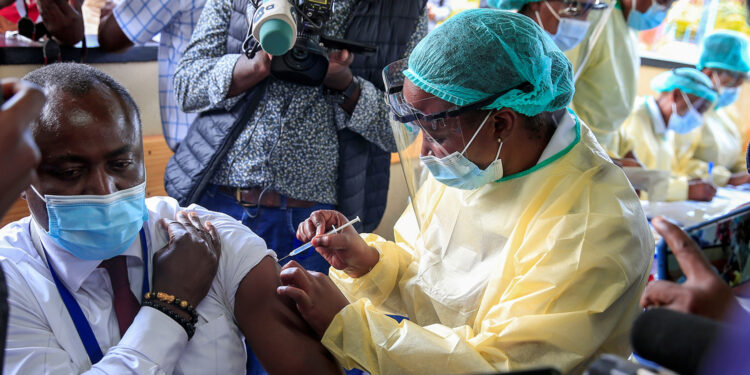By Ebi Kesiena
Nigeria’s Minister of Health and Social Welfare, Muhammad Ali Pate, has called for the creation of a new public health order for Africa, urging the continent to take full ownership of its health future through domestic resource mobilisation, local manufacturing, and stronger regional leadership.
In a statement issued at the Africa Health Sovereignty Summit in Accra, Pate said that the current global health architecture has long failed to prioritise Africa’s unique realities.
He argued that most frameworks and funding initiatives are still externally driven and focused on a narrow set of diseases and priorities, leaving African voices largely sidelined.
The Case for a New Health Paradigm
“Global health is often described through the lens of a few priority issues, HIV, malaria, tuberculosis—or through technical areas like health financing or maternal and child health,” Pate said. “Yet, these are often framed by external narratives that fail to reflect the actual health security and system needs of African nations.”
The minister warned that shifting geopolitics and rising nationalism in donor countries make Africa’s overreliance on external funding increasingly unsustainable. He called for a recalibration of public health strategy, one rooted in sovereignty, local solutions, and homegrown innovations.
“We cannot build healthier populations purely on the generosity of other nations. It is time to define our path, rooted in sovereignty and aligned with local needs,” he said.
Learning from History and Present Gaps
Pate reflected on structural inequities that persist despite decades of international engagement, referencing milestones such as the 1955 Bandung Conference, the 1978 Alma Ata Declaration, and the rise of over 70 global health partnerships, including the Global Fund, Gavi, and CEPI.
Despite these efforts, he noted, Africa still faces fragmented interventions, donor-driven priorities, and dwindling funding, making it difficult to achieve true health security.
Nigeria’s Model and Strategic Framework
Highlighting Nigeria’s ongoing health sector reforms, Pate said the country is implementing a seven-point strategic framework to reclaim leadership in health governance. This includes, Strengthening primary health care systems for wider community access, Digitising health data to improve surveillance and decision-making, Mobilising domestic resources to reduce reliance on external donors, Expanding local manufacturing of medicines, vaccines, and diagnostics to ensure supply chain sovereignty, Leveraging private sector investments and public-private partnerships to complement government efforts.
“Nigeria is operationalising bold reforms in primary care, financing, and digitisation, while expanding access through community-level data systems,” Pate said.
Why the New Order Matters for Africa
Public health experts say that a locally driven public health order would allow African countries to respond faster to pandemics, reduce dependence on foreign aid, and stimulate local pharmaceutical and biotechnology industries. It would also create jobs, foster innovation, and improve life expectancy by aligning health interventions with the realities of African populations.
Pate concluded with a call for collective continental action, stressing that only by reclaiming leadership in health policy and investment can Africa overcome historical inequities and secure its population against future health crises.




































